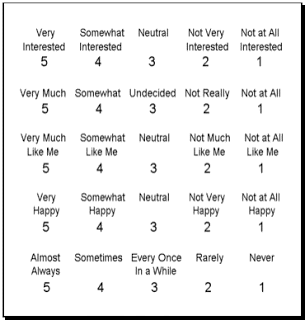Finding the Virtuous Among Us

A lot of psychological research is based upon self-report questionnaires. And for a lot of things, more things than you'd imagine, this methodology totally works. There are many things that people can accurately share via self-report. For example, if they are an introvert or an extrovert. If they are politically liberal or conservative. If they are anxious or depressed. In addition, there are many cases where perception is reality. For example, can you have a good sense of humor if no one thinks you are funny? The perception that you aren't funny is what makes you not funny. Same goes for a lot of spiritual variables. If you think God is angry with you and is wanting to damn you to hell that perception is going to be spiritually determinative.
That said, there are many things that don't lend themselves to self-report. Many things we'd like to assess have issues with what psychologists call social desirability. Some things are so socially toxic we can't admit them to ourselves or others. You can't walk up to people and ask, "Are you a racist?" Hard to get a straight answer on that. For the two reasons I noted. Few people would own the label racist even though, well, they are a racist. And even if the person were a proud and self-identified racist they might not want you to know this. Either way, you're not going to get a straight answer.
But there are also problems on the virtuous end of the spectrum.
With the rise of what has been dubbed positive psychology many psychological researchers have taken an interest in the psychology of virtue. An obvious research question to ask about virtue has to do with the correlates of virtuous people. What are loving people like? Grateful people? Courageous people? Wise people?
Well, to get a start on this question you need to identify these virtuous people in relation to the general population. But how do you assess virtue? Can it be done with self-report? Some virtues might be assessed this way. But think about a virtue like humility. Can you ask a person "On a scale from 1 to 10 rate how humble you are."? How's a humble person supposed to answer that question? With a ten? A one? Something in the middle?
But humble people do exist and psychologists are interested in finding them. We have some questions we'd like to answer about them. How'd they get to be that way? What are they like, these humble people?
The point is, research into virtue is interesting and potentially important. But assessing virtue is pretty tricky.
One way to crack this nut is to use a peer nominating procedure. One of my thesis students, Grace, used this technique in her research about wisdom. As a part of her research Grace had members of a church identify people within their congregation who were exemplars of wisdom. Who are, Grace asked, the wise among you? Gathering these names Grace identified people who were nominated many times. These individuals were pulled to make a "wisdom group" which could be compared with the rest of the congregation. The goal was to see if there were any personality differences between the wise group and the others.
I wonder if churches might benefit from techniques like this?
We all know that an important facet of spiritual formation is imitation, following a model. As St. Paul said, "imitate me as I imitate Christ." But most churches can't get a start on this process because they don't know who to point to as models. Nomination procedures like the one Grace used might help here. Such procedures might identify virtue coaches, people who we might set before the church as resources for those wanting to acquire particular virtues.
At the very least, by pointing these people out we can simply watch them and do as they do.



